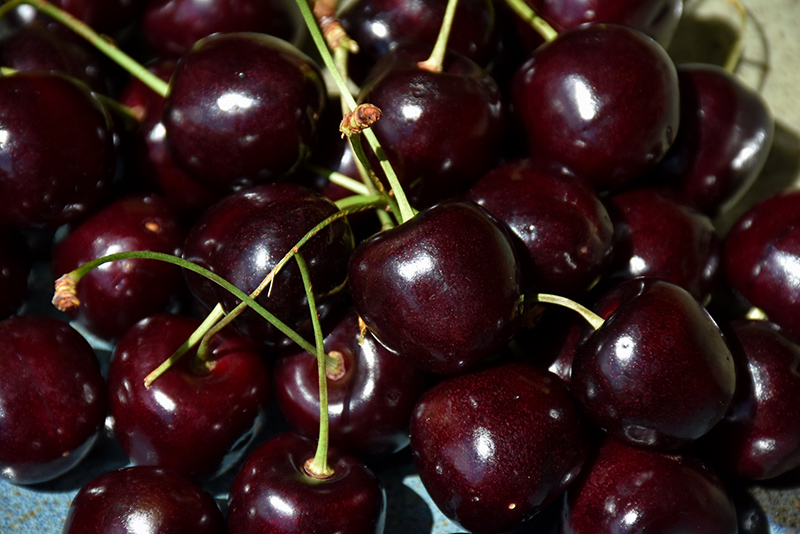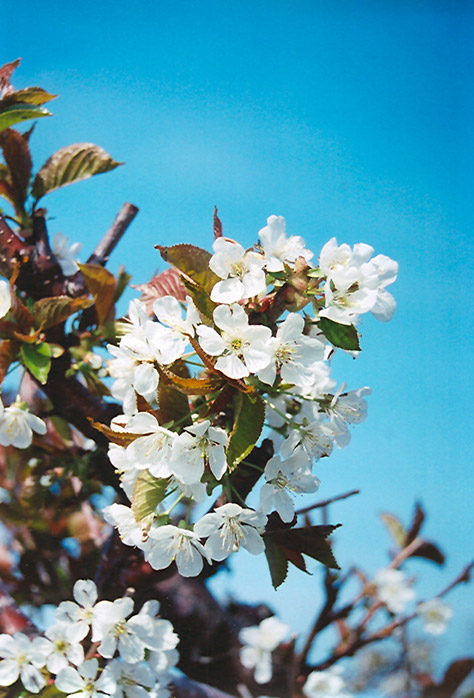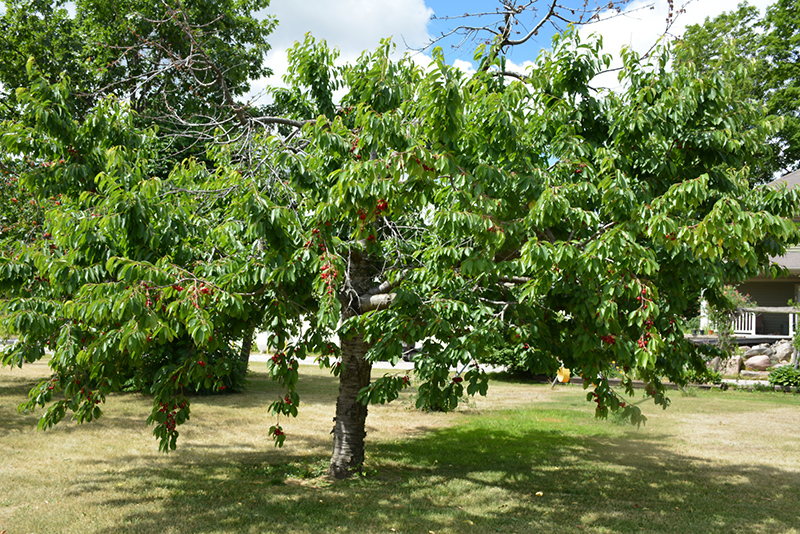Plant Search Tool
This is a 3rd party Knowledgebase and does not reflect actual stock
Height: 40 feet
Spread: 40 feet
Sunlight:
![]()
Hardiness Zone: 6a
Other Names: Sweet Cherry, Mazzard Cherry
Description:
The most common commercial cherry variety featuring showy white flowers in spring followed by sweet deep red fruit, tall and upright, best for larger landscapes; needs full sun, well drained soil and a pollinator, be prepared to fight the birds for fruit
Edible Qualities
Bing Cherry is a large tree that is typically grown for its edible qualities. It produces dark red round fruit (technically 'drupes') with black overtones and crimson flesh which are usually ready for picking from early to mid summer. Note that the fruits have hard inedible pits inside which must be removed before eating or processing. The fruits have a sweet taste and a juicy texture.
The fruit are most often used in the following ways:
- Fresh Eating
- Cooking
- Baking
- Preserves
- Canning
Features & Attributes
Bing Cherry is clothed in stunning clusters of fragrant white flowers hanging below the branches in early spring before the leaves. It has dark green deciduous foliage. The pointy leaves turn yellow in fall. The fruits are showy dark red drupes with black overtones, which are carried in abundance from early to mid summer. The fruit can be messy if allowed to drop on the lawn or walkways, and may require occasional clean-up. The smooth dark red bark adds an interesting dimension to the landscape.
This is a deciduous tree with a shapely oval form. Its average texture blends into the landscape, but can be balanced by one or two finer or coarser trees or shrubs for an effective composition. This plant will require occasional maintenance and upkeep, and is best pruned in late winter once the threat of extreme cold has passed. It is a good choice for attracting birds to your yard. Gardeners should be aware of the following characteristic(s) that may warrant special consideration;
- Disease
Aside from its primary use as an edible, Bing Cherry is sutiable for the following landscape applications;
- Shade
- Orchard/Edible Landscaping
Planting & Growing
Bing Cherry will grow to be about 40 feet tall at maturity, with a spread of 40 feet. It has a high canopy with a typical clearance of 6 feet from the ground, and should not be planted underneath power lines. As it matures, the lower branches of this tree can be strategically removed to create a high enough canopy to support unobstructed human traffic underneath. It grows at a medium rate, and under ideal conditions can be expected to live for 50 years or more. This variety requires a different selection of the same species growing nearby in order to set fruit.
This tree is typically grown in a designated area of the yard because of its mature size and spread. It should only be grown in full sunlight. It does best in average to evenly moist conditions, but will not tolerate standing water. It is not particular as to soil type or pH. It is highly tolerant of urban pollution and will even thrive in inner city environments. This is a selected variety of a species not originally from North America.








